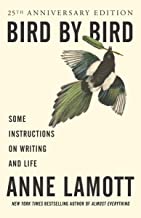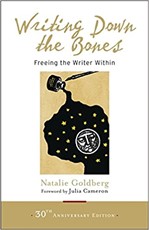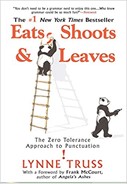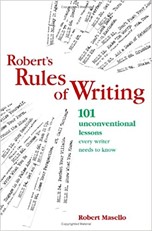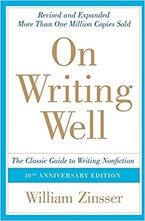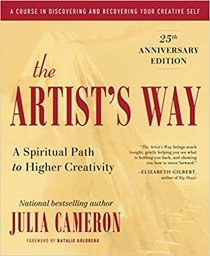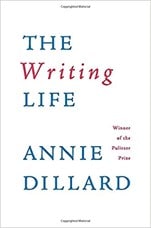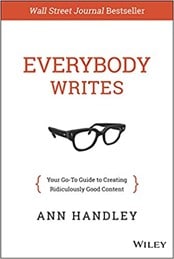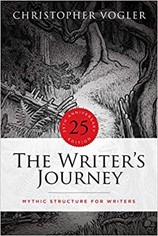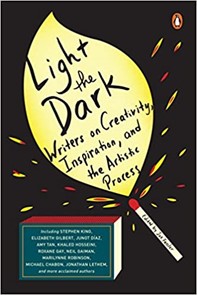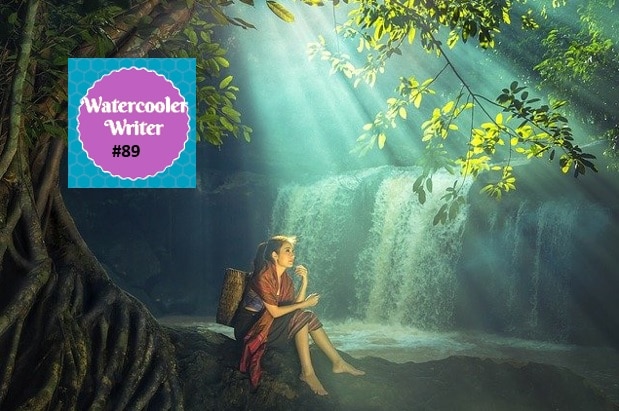
10+ (More) Great Books Every Aspiring Writer Should Read
10+ (MORE) GREAT BOOKS EVERY ASPIRING WRITER SHOULD READ
Writers love to read about writing. From advice on mastering their craft, to memoirs of writers, and even straight-up grammar tips, books about writing are a major part of every aspiring writer’s library.
The Writers For Hire writer, Jennifer Rizzo, told us about “5 Great Books Every Aspiring Writer Should Read,” and they were great suggestions, but there are a lot more fantastic books on writing out there.
So, once you’ve devoured those five books, here are 10 more that are well-worth your time.
Some will teach you new things. Others will motivate and inspire you to creative genius! (Well, that’s the hope, anyway!) And all of them will help you be a better writer for having read them.
1. Bird by Bird: Some Instructions on Writing and Life – Anne Lamott
If you are a writer, dream of being a writer, or just like writers, this is a must-read book.
Lamott has a friendly, unabashed style that makes you feel like you’re chatting over drinks with a buddy and getting the inside scoop. You’ll be inspired, educated, and highly entertained.
If you doubt it, just skim the chapter called “Polaroids.” If that doesn’t grab you, nothing will.
2. Writing Down the Bones – Natalie Goldberg
Much like “Bird by Bird,” Goldberg’s book is an instructional writing book that is filled with personal anecdotes that are witty, charming, and filled with insight.
It’s not all grounded in sentence structure, either. Chapters like “Don’t Use Writing to Get Love” are very personal and go well beyond the page. It’s a great book for beginners who are trying to find their own voice.
3. Eats, Shoots & Leaves: The Zero Tolerance Approach to Punctuation – Lynne Truss
Truss’s “Eats, Shoots, & Leaves” is a book about punctuation that spent 25 weeks on the New York Times Best-Seller list in 2004. I’ll pause to let you mull that over.
A bemoaning of the slipping attention to correct punctuation, this book is funny, but also imminently useful.
If you struggle with commas, semi-colons, or any part of punctuation in the English language, Truss probably tackles it in this book and provides simple, fool-proof methods to remember the rules.
And if you’re curious about that title, just google the “Panda eats, shoots and leaves joke.”
4. Robert’s Rules of Writing – Robert Masello
As you start to venture down the trail of becoming a writer, you will undoubtedly be bombarded with rules.
From instructors to successful writers and even well-intentioned relatives, rules like “You have to write every day!” and “Show, don’t tell!” will start to pile up in your mental file cabinet.
Robert Masello wrote his book “Robert’s Rules of Writing: 101 Unconventional Lessons Every Writer Needs to Know” to add to your file while blowing up some of the rules you thought you knew. For example:
- Rule 13: Stop Reading
- Rule 52: Lose Your Form
- Rule 97: Spill Your Secrets
5. On Writing Well – William Zinsser
Zinsser’s “On Writing Well” is less focused on the fiction crowd and zeroes in on storytelling in non-fiction writing. It’s loaded with educational features focusing on the craft of writing, including different forms like memoir and travel writing.
There are countless tips and tricks that writers can put to use in their writing to make it absolutely shine.
If you enjoy writing non-fiction, this is a must-read.
6. The Artist’s Way – Julia Cameron
This book looks at the creative process and working towards improving creativity.
Subtitled “A Spiritual Path to Higher Creativity,” Cameron’s book is a faith-based approach to finding your creativity using a 12-week program.
“The Artist’s Way” is categorized as a self-help book and made it onto selfhelp.fm’s Top 100 Self Help Books of All Time list.
If you’re looking to develop your creative life and are willing to put in some effort, “The Artist’s Way” and its accompanying workbook could be just what you need.
7. The Writing Life – Annie Dillard
Instead of being an instructional book, “The Writing Life” by Annie Dillard is a sneak peek behind the curtain into a writer’s life as she does her work.
It’s not always pretty, either. Actually, it’s rarely pretty.
It’s difficult, frustrating, and oftentimes overwhelming, but the anecdotes help you understand just what to expect if you’re going to live as a writer and how to persevere.
If you love raw and honest writing, this one is for you.
8. Everybody Writes – Ann Handley
Ann Handley is a web content influencer. Rather than writing novels or short stories, her genre is the blog post and the social media ad.
This book is simple and straightforward and full of tips to help anyone write better, whether you’re trying to market your own business or just look a little smarter on Twitter.
You’ll brush up on your grammar and gain insight into content-marketing techniques.
9. The Writer’s Journey – Christopher Vogler
Christopher Vogler started this book as a memo for Disney executives as he worked on The Lion King 26 years ago. (Can you believe The Lion King is that old?) It’s essentially a reworking of Joseph Campbell’s “The Hero With a Thousand Faces” made more approachable and relevant for today’s screenwriters.
You don’t have to be writing for the screen to appreciate the useful tips and strategies laid out in “The Writer’s Journey.” This book should be on every writer’s desk.
10. Light the Dark: Writers on Creativity, Inspiration, and the Artistic Process – Edited by Joe Fassler
What happens when you ask a bunch of successful writers to pinpoint one of the most influential passages they’ve ever read? This book happens.
With entries by Stephen King, Amy Tan, Michael Chabon, Jonathan Franzen, and a couple of dozen more writers, “Light the Dark” is a fascinating and inspiring read.
Each writer discusses a piece of writing that not only moved them but changed them somehow. Each entry is an easy 5-10-minute read, which makes a great choice for jump starting each day with a dose of inspiration.
Bonus Books
A lot of writing doesn’t end up on bestseller lists. It’s done with a different purpose in mind. If you want help learning how to take your writing from good to amazing in a specific field, try one of these great reads.
Write, Publish, Repeat: The No-Luck Required Guide to Self-Publishing Success – Sean Platt, Johnny B. Truant with David Wright.
Self-publishing is more common, and more accepted, than ever. But it can still be a bit confusing to the first-timer. This book walks you through it step by step.
Words that Sell: More than 6,000 Entries to Help You Promote Your Products, Services, and Ideas – Richard Bayan
Think of this as a copywriter’s thesaurus. It’s an absolute gem to keep close by your computer.
The Copywriters Handbook – Bob Bly
A standard for copywriters, this is everything you need to know to turn your words into sales.
The Wizard of Ads – Roy Williams
Fun to read with very short chapters, “The Wizard of Ads” dives into the strategies involved with writing truly great and memorable ads.
Nicely Said: Writing for the Web with Style and Purpose – Nicole Fenton and Kate Kiefer Lee
Writing for the web is a lot different than writing for the printed page. This book is a primer for understanding the language of the internet.
Save the Cat! The Last Book on Screenwriting You’ll Ever Need – Blake Snyder
“Save the Cat!” is an insider’s guide to writing for the screen, with funny takes on everything from loglines to rules he calls “screenplay physics.” Despite the title, Snyder wrote five more companion books for this one.
Related Content
- 0 Comment
Subscribe to Newsletter
- How Can SharePoint Be Used To Organize and Disseminate SOPs?
- Planning the Perfect Genealogy Research Trip: A Step-by-Step Guide
- From Silly to Awesome: How Words Change Meaning Over Time
- The Psychology of Font Choice: How Typography Impacts Content Engagement
- How to Distribute SOPs for Maximum Usability
